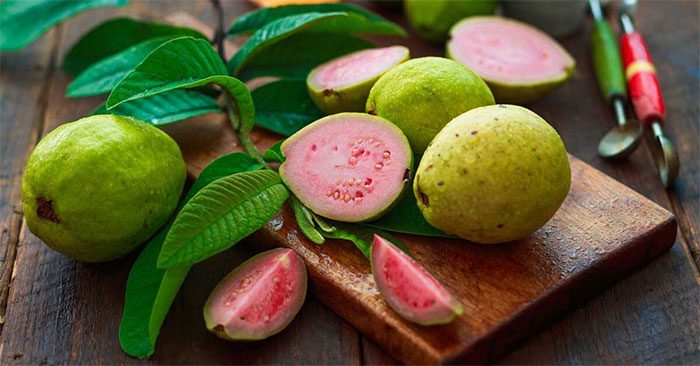There are many ways to stabilize your blood pressure, including changes in diet and medication.
Simple Ways to Help Stabilize Your Blood Pressure
High blood pressure increases the risk of heart disease and heart attacks, so keeping your blood pressure within normal limits is crucial for protecting your health.
There are many natural ways to keep your blood pressure normal. Simple changes in your diet and lifestyle are great ways to achieve this.
1. Exercise More
You’ve heard this a million times, right? Exercise offers numerous health benefits. In addition to preventing diseases and managing body weight, a suitable workout schedule can help keep your blood pressure balanced.
You should choose an exercise that you can stick with long-term. Walking, cycling, and swimming are excellent options. Aim for at least 30 minutes of exercise each day to positively influence your blood pressure.
2. Lose Weight
Being overweight leads to high blood pressure. Many foods that contribute to weight gain are high in sodium and fats, which are also factors that increase unhealthy cholesterol levels in the body.
Losing weight can help you return to normal levels. Maintaining your exercise routine and reducing calorie intake will help you successfully lose weight and stabilize both weight and blood pressure.
3. Eat Healthy
Nutritious foods protect your health in many ways. Therefore, eat a variety of food groups, including plenty of fruits, vegetables, whole grains, lean meats, and low-fat dairy. A balanced diet helps you control fat and calorie intake, maintaining an appropriate weight. This is also a way to stabilize blood pressure without medication.

A healthy diet is also a way to stabilize blood pressure without medication. (Photo: getthisstrength).
4. Adjust Salt Intake
Most Americans consume too much salt. The majority of people eat more salt than necessary. Salt intake has a significant impact on your blood pressure. Reducing salt intake is critical when your blood pressure is too high.
In addition to cutting back on salt in meals, you should also limit dining out, fast food, and processed meats, which are typically high in salt.
5. Increase Potassium
Potassium is a nutrient that helps stabilize your blood pressure. Therefore, a deficiency in potassium is not beneficial for your cardiovascular health. In fact, too little potassium can lead to heart problems.
Most fruits and vegetables contain potassium, but potatoes, sweet potatoes, bananas, leafy greens, and squash are particularly high in it. If you are still concerned about your potassium intake, consult your doctor for appropriate supplementation methods.
6. Quit Smoking
Smoking can raise your blood pressure. Therefore, quitting this habit will improve your blood pressure. Additionally, quitting smoking protects you from other health issues, including lung cancer and emphysema. If you are unable to quit smoking, consider using smoking cessation products.

If you are on blood pressure medication, alcohol can hinder the effectiveness of the medication. (Photo: maestro2300.com).
7. Reduce Alcohol Consumption
A small amount of alcohol each day can help lower blood pressure, but excessive drinking can cause blood pressure to rise. If you are taking blood pressure medication, alcohol can interfere with its effectiveness. You should reduce your daily alcohol intake. If you find it difficult to cut back, consult your doctor for advice.
8. Manage Stress
Chronic stress can contribute to increased blood pressure. When stressed, individuals tend to eat unhealthy foods, drink excessively, or smoke. These factors negatively affect blood pressure.
If you cannot eliminate stress, you can manage it in healthy ways. For example, plan your day and focus on priorities; avoid overworking and learn to say no to things outside your list.

Using public transportation can help reduce stress during rush hour driving. (Photo: Freepik)
Focus on issues you can control and plan to address them. If you are struggling with work, talk to your manager. If there are conflicts with children or your spouse, look for steps to resolve them.
Additionally, try to avoid stressors where possible. For example, if commuting during rush hour causes stress, you might go in earlier in the morning or use public transport; or avoid people who cause you stress.
Also, make sure to take time to relax and engage in activities you enjoy, such as walking, cooking, shopping, etc. Meditating and taking deep breaths daily can help manage stress.
9. Monitor Blood Pressure and Get Regular Check-ups
Monitoring your blood pressure at home helps you keep track of your levels. This ensures that lifestyle changes are effective and alerts you to potential health complications. Regular health check-ups are also key to managing blood pressure. From there, doctors can provide appropriate recommendations based on your health condition.
On the other hand, family and friends can support you in improving your health. They can encourage you to take care of yourself, accompany you to doctor visits, or join you in exercising to keep your blood pressure at standard levels.
Fruits That Help Stabilize Blood Pressure
Oranges
One of the most common, easily accessible, and widely consumed fruits in the world is the orange, which is very high in potassium. A 100g serving of orange contains up to 181mg of potassium (according to data from the United States Department of Agriculture). Therefore, it is recommended to eat them regularly to help control blood pressure.
Guavas

Compared to oranges, guavas are even richer in vitamin C and potassium.
According to NDTV, this tropical fruit offers numerous health benefits, especially for those with blood pressure issues. Compared to oranges, guavas are even richer in vitamin C and potassium. Data from the United States Department of Agriculture shows that 100g of guava contains 417mg of potassium, making it very effective in regulating blood pressure. You can add guavas to your dessert menu, make juice, or prepare fruit salads…
Bananas
Bananas are inexpensive and available in markets everywhere but are often overlooked because not everyone understands their nutritional value. Bananas are high in potassium, which can promote the excretion of sodium from the kidneys and inhibit the urea and angiotensin systems, potentially lowering blood pressure. According to the American Heart Association, potassium not only reduces the effects of sodium but also has positive effects on blood vessel walls.
Note: People with kidney diseases should speak with their doctor about their daily potassium intake.


















































